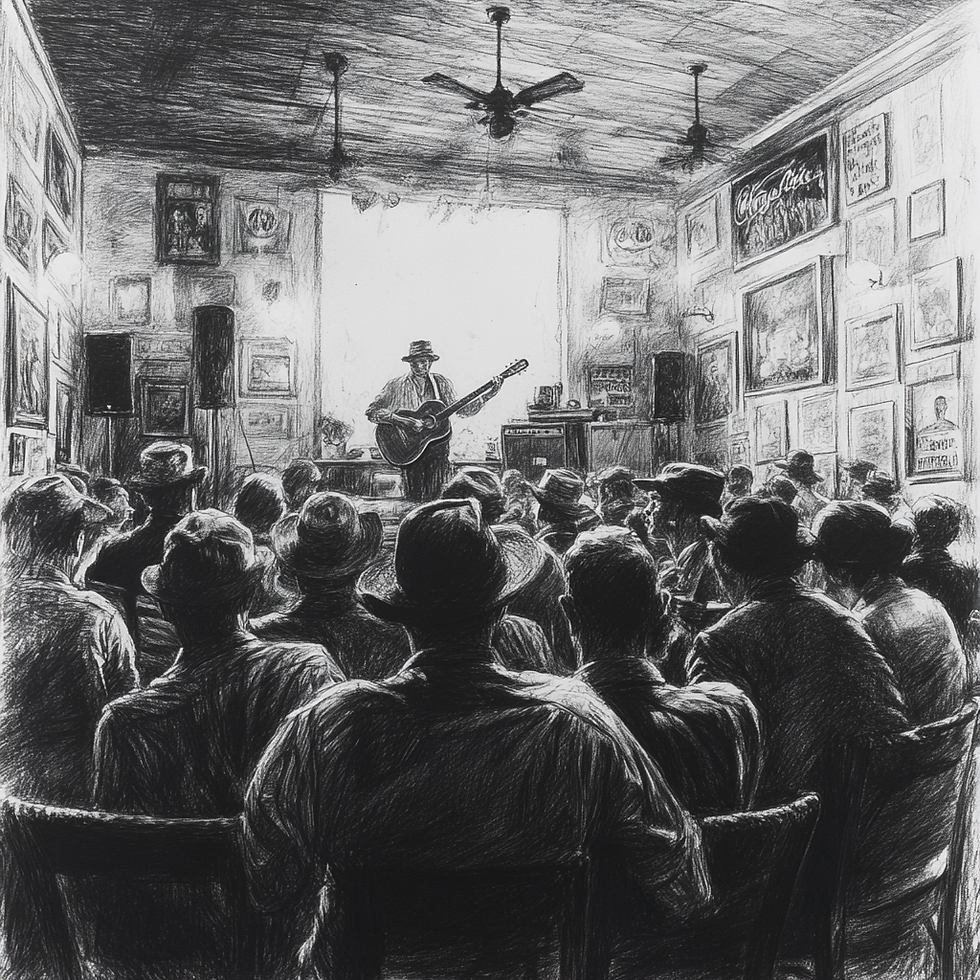The Legend of Robert Johnson
- redmmo1
- Nov 11, 2024
- 2 min read
Robert Johnson, the Delta Blues virtuoso, remains one of the most enigmatic figures in the history of music, cloaked in as much myth as mastery. Born in 1911 in Hazlehurst, Mississippi, Johnson’s life was as fleeting as his music was enduring, leaving behind a legacy wrapped in mystery and a profound influence that resonates through generations.

The legend of Robert Johnson centers around his reputed deal with the devil—a story that has tantalized fans and historians alike. As the story goes, Johnson was a mediocre guitarist until he disappeared for a few months in the early 1930s. Upon his return, his mastery of the guitar was so profound that it seemed supernatural. The myth developed that Johnson had met the devil at a crossroads near Dockery Plantation at midnight. There, he purportedly traded his soul for his incredible talent on the guitar, a story that Johnson himself flirted with in songs like “Cross Road Blues” and “Me and the Devil Blues.”
Johnson’s music, characterized by complex guitar skills and hauntingly emotive vocals, was steeped in the themes of despair, love lost, and dealing with the devil. In a recording career that spanned little more than two years, Johnson produced recordings that would become cornerstones of the blues genre, including tracks such as “Love in Vain,” “Hellhound on My Trail,” and “Sweet Home Chicago,” which have been covered by countless artists across various music genres.
Despite his profound influence, Johnson’s life was as shadowy as the tales that posthumously bloomed. He recorded only 29 distinct songs during his brief career, with little known about his life, adding layers to his mystique. His death at the young age of 27, under mysterious circumstances involving poisoning, only fueled the legend further, placing him as an early member of the infamous “27 Club” of musicians who died too young.
The power of Johnson’s music and the enduring fascination with his life story reflect the blend of myth and reality that makes the blues profoundly impactful. His techniques influenced future generations of musicians, from Eric Clapton and Keith Richards to Bob Dylan, all of whom have acknowledged Johnson’s influence on their music.
Robert Johnson’s life and career, though brief and shrouded in mystery, changed the landscape of music forever. His legacy is not just in the notes he played, but also in the spirit of his myth, which has become as much a part of American music folklore as the songs he left behind. In the world of blues, Johnson’s shadow looms large, not just as a foundational figure but as a perpetual symbol of the crossroads between worldly pain and otherworldly skill.




Comments